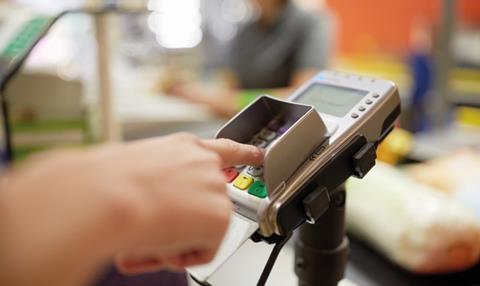New research from YouGov, in partnership with Red Tractor, has suggested that almost half of the people surveyed are changing what they buy to feed their families due to price pressure.

However, the latest and second Red Tractor ‘Trust in Food’ Index has revealed that food from the UK is still more trusted than anywhere else in the world, but highlights increased concerns from British consumers as some eating and shopping habits change.
The research says that trust in food has declined by 8% overall, and this increases to 13% for those in skilled, manual employment.
Almost a quarter of shoppers said that they are trading down, buying what they perceive to be food produced to lower food safety and animal welfare standards, which increases to 29% for people on lower incomes.
The report also asserts that around 30% of consumers are buying less meat because of the current economic circumstances and that this figure increases to around 35% for those from lower income households.
The last survey conducted in 2021 suggested that 78% of the people surveyed said that they trusted the safety and quality of food purchased from supermarkets. This year, the figure has dropped to 58%. Red Tractor say that “the striking 20% change in trust suggests that as people switch and trade down to value ranges, the standards for these ranges are assumed to be weaker.”
Farmer performance
Overall trust in the role of famers in the food chain remains high according to the report at 77%. However, this has also declined since the first report, with just over half of people believing that farmers are performing well on animal welfare, compared with six out of ten of people last year. Consumers also allegedly perceive that farmers are not performing well on issues around climate change, fertilisers, food and plastic waste.
Low trust surrounding trade
In other findings, the Index found that people believe Brexit is having an impact on food – 26% of respondents said they felt the quality of food in the UK has been falling over the last two years.
Furthermore, 43% of consumers believe that new trade deals will reduce standards of food in the UK further.
The U.S. and India – both countries the government is seeking trade deals with – have very low levels of trust. Red Tractor found that 27% and 18% of consumers trust food that originates in those countries respectively.
According to the findings, Ireland and New Zealand are the most trusted countries for imported food among survey respondents, followed by many European and Nordic countries, such as Italy, Sweden, Denmark, Netherlands and Germany. The Index found that 58% of consumers look at the country of origin before buying a product.
Tackling confusion
Commenting on the report’s findings, chair of Red Tractor Christine Tacon said that food assurance bodies and wider industry must tackle the confusion around the quality of value ranges produced in the UK.
She commented: “We must tackle this before the drop in trust becomes toxic, by making it clear to people doing their shopping.”
She added: “As an industry we must work together to reassure people that whatever their price range, they can be confident in the standards and safety of food produced in the UK - people should never have to choose between price and food safety”.
Maintaining standards
Sir Robert Goodwill, MP for Scarborough and Whitby and chair of the Environment, Food and Rural Affairs Committee, said: “As the government looks to grapple with the increased costs that our food producers and consumers face - and the impact this is having on our food security - we may have to revisit the balance we strike between the food we import and the food we grow ourselves.
“If we are to seek to grow more food ourselves, it will be vital to maintain trust in the UK food system and to ensure that no one has to compromise standards for price. The Red Tractor scheme plays an important role in raising the public’s awareness that our food is produced to high standards.”
This story was originally published on a previous version of the Meat Management website and so there may be some missing images and formatting issues.












